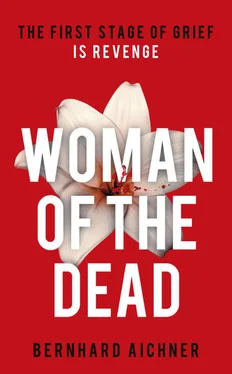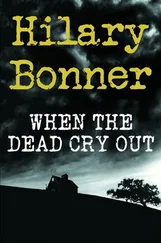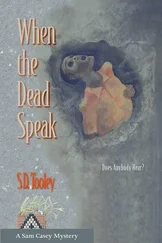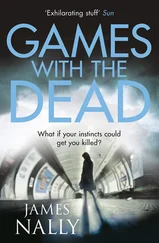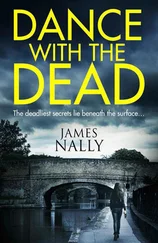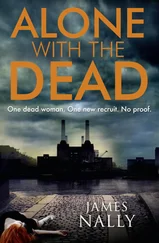‘You reported Schönborn to the police. Why?’
‘Because he dropped me like a hot potato, he sold the place to a German and scarpered.’
‘And you thought he owed you something?’
‘I always kept my mouth shut, I did everything for that dickhead. Then he hands me five hundred euros and waves goodbye.’
‘That wasn’t enough?’
‘It was a joke. The cheek of it! A humiliation. I always covered his back. The show wouldn’t have gone on without me.’
‘You were the life and soul of the Annenhof?’
‘Correct.’
‘So you aided and abetted him?’
‘So what if I did?’
‘Why did you do it?’
‘For the money. Look at this place.’
‘And what about the illegals?’
‘They were all well off here, far better off than where they came from. They even had their own pool.’
‘Hackspiel?’
‘What?’
‘Give me another schnapps.’
‘As many as you like, lass.’
‘I’m not here to judge you.’
‘I should think not.’
‘I’m here because I absolutely have to know more about that hotel.’
‘It’ll cost you.’
‘How much?’
‘Two hundred.’
‘Is what you know worth that?’
‘You bet.’
‘Well then, cheers. And start talking.’
‘It’s delicate.’
‘You should be able to get over your inhibitions for two hundred euros.’
‘Right: even if the pigs don’t want to hear it, Schönborn was running a knocking-shop in the cellar.’
‘What?’
‘You heard me. A brothel. For fucking tarts. I told you it was delicate, lass.’
‘A brothel?’
‘Officially it was massages only.’
‘But?’
‘But it was a high-class knocking-shop. Top quality, understand?’
‘You went there?’
‘I’m afraid not. Beyond my means. But the women were the best. The guests spent a fortune down there.’
‘Down where?’
‘In the wellness rooms.’
‘Says who?’
‘I do.’
‘And who else?’
‘No one wants to say too much, lass. Those who did know won’t want to talk about it, understand?’
‘Why not?’
‘Because they’d been to the knocking-shop, and that doesn’t go down well with their wives.’
‘You mean the locals came for massages as well?’
‘That’s what they called it.’
‘But you don’t know who, of course. And you can’t prove that it was prostitution.’
‘I know what it was. I was the Annenhof’s, shall we say, factotum for years.’
‘But you can’t give me the name of anyone who could confirm what you say?’
‘I don’t want to start a war here in the village, lass. But I can tell you one thing, they went at it like the clappers in that cellar for years. And just before they were going to get busted, Schönborn sold the hotel. He could smell a rat, knew his time would be up in a month or two. The deals on the side, the knocking-shop, and God knows what else.’
‘These are just rumours, though? You’ll have to give me something more for two hundred euros.’
‘You can have another schnapps if you really want. Cheers, lass.’
‘I’m looking for a photographer.’
‘Like I said, there are only devils here. You won’t find a photographer in this place.’
‘A photographer who had something to do with the Annenhof. Does that mean anything to you?’
‘Oh, that’s easy. I’ll be happy to help you out there.’
‘You will?’
‘Schönborn’s son is a photographer. I’m sure he had a massage or two on his visits home. Arrogant little dickhead. His name is Edwin.’
‘Schönborn’s son is a photographer?’
‘That’s right. What’s the matter with you, lass?’
‘Can it really be that simple?’
‘I have no idea what you’re talking about, but yes, Schönborn junior is a photographer. He has a studio in Innsbruck, quite the little artist, he is. All financed by Papa. Junior is a layabout.’
‘Hackspiel.’
‘What?’
‘You’ve really earned those two hundred euros.’
‘Fine. We should have another drink to that.’
‘Yes, we should.’
Blum drinks. She never imagined it could be so simple. To think that her man is the son of the former hotelier, or at least there’s a possibility he is. The man who took the photos. One of the five torturers, perhaps Mark’s murderer. He was often at the hotel while Dunya worked there, he came at weekends, says Hackspiel. He used to have a good time with his friends, partying in the mountains; he was the boss’s son and acted the part. Hackspiel dislikes him, hasn’t a good word to say about him. Edwin Schönborn was a professional daddy’s boy, spoiled rotten. Hackspiel tells stories. None of them make Schönborn a murderer, yet Blum feels that she is on the right track. Hackspiel refills their glasses, and tries to persuade Blum to buy a devil mask. Blum just smiles. The alcohol is warming her, she is excited, planning her next steps. She will go to see Edwin Schönborn, find out whether he has anything to do with it. Or whether it is all just coincidence.
Blum keeps drinking. She doesn’t consider how she is going to get home, she sits on the shabby sofa listening to the devil-carver. Much of what he says is nonsense, she guesses, but a lot of it must be true. This crazy old man may have brought her, instantly, to where she wants to be. She wants to believe in this, the simplest solution; she suspects that Mark did the same, that he was investigating the most obvious suspect. Edwin Schönborn had the opportunity to abduct Dunya and the others, he knew his way around the hotel, he could have anaesthetised her. It would have been possible for him to plan and carry out the abduction without attracting anyone’s attention. Edwin Schönborn, son of one of the most influential men in the Tyrol. Blum will go and see him. Tomorrow. As soon as the world stops swimming before her eyes.
Seven large glasses of schnapps later, Blum can’t take any more. She can’t ride the bike either. She wants to, but Hackspiel won’t let her, takes the key away and pushes her back on the sofa. You’re staying here, lass, he says. Then he calmly goes on carving. Blum makes a brief phone call to Karl, asking him to put the girls to bed and see to Dunya. The bike broke down, she says, a tyre burst, she can’t start for home until morning. He mustn’t worry, and please will he kiss the girls goodnight for her. Then she just lies there watching Hackspiel’s knife sink into soft pinewood. For an hour she watches a devil emerging from the wood. Blum sees him taking shape, slowly opening his mouth and baring his teeth. A devil comes into the world. Devils have taken Dunya’s life away, men in masks, men without a story, men without names. They are everywhere, on the walls, in Blum’s head; she is afraid to close her eyes. Everything is spinning, and however hard she tries to keep her eyelids open she can’t. They are too heavy, the devils push them down. Everything goes black.
Blum parks outside the District Criminal Investigation Office. Since waking up she has thought of nothing else but the fact she needs help; the situation is too much for her. She must talk to Massimo, confide in him. Since she opened her eyes, she has been thinking she must tell him what she knows. She can’t and won’t be alone with it; she will put the matter in his hands. She wants to withdraw, look after her children, look after Dunya, help her apply for asylum, maybe find her a job.
It was still dark when she opened her eyes. Hackspiel must have fallen off his chair while he was carving. He was lying on the floor with his limbs outstretched, snoring. The rattle of his snores had woken Blum, roused her from her dreams. She was grateful, because the dreams were terrible. Waking up beside Hackspiel had been a relief. She got up quietly, put two hundred euros on Hackspiel’s chest, and went out into the tail end of the night. It was only five in the morning and the streets were empty. Blum had the autobahn to herself. Her decision became more and more concrete the closer she came to Innsbruck. Looking for the photographer on her own was dangerous; she knew what these men were capable of. Dunya was probably right to assume the worst, believing that they wouldn’t hesitate to kill again. Blum wanted to go home to her children, she didn’t want to endanger them. She must protect them, and Karl, and Reza, the people who were closest to her. If the story was true she must stop snooping around. She must go to Massimo, quickly, she thinks, as she rides at two hundred kph and with a headache through west Tyrol.
Читать дальше
